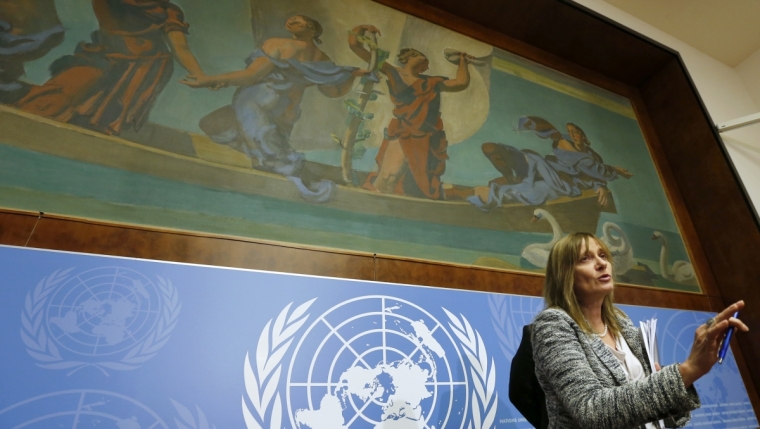Starving Liberians threaten breakout from Ebola quarantine

LIBERIA, West Africa (Christian Examiner)—When dozens who were quarantined after a number of deaths in the impoverished town of Jenewonda, Liberia threaten to leave isolation because they are not receiving food, frustration swelled at the same pace as the spread of Ebola within the nation.
West African nation's state radio reported today more than 40 quarantined individuals said the U.N. World Food Program stopped providing food to people affected by Ebola in the areas of Grand Cape Mount County near the Sierra Leone border.
But according to CBS News, a World Food Program spokesman said they hadn't been distributing food there.
"WFP in Liberia heard about this community being isolated only two days ago via the radio, and staff immediately began organizing a mission to bring food to the quarantined people," said spokesman Alexis Masciarelli in an email to The Associated Press. The community is scheduled to receive food today on trucks from Monrovia, she said.
The CDC reports on their website that as of Oct. 22, there are a total 4,665 total Ebola cases and a death toll of 2,705 in Liberia. The worst epidemic on record of the deadly virus has now killed more than 4,500 people in Liberia, Sierra Leone and Guinea. Eight people have also died in Nigeria and cases have been reported in the United States and Spain.
The report comes days after the World Health Organization said a serum made from the blood of recovered Ebola patients could be available to those in Liberia within weeks.
Dr. Marie-Paule Kieny, WHO assistant director-general, said: "There are partnerships which are starting to be put in place to have capacity in the three countries to safely extract plasma and make preparation that can be used for the treatment of infective patients."
"The partnership which is moving the quickest will be in Liberia where we hope that in the coming weeks there will be facilities set up to collect the blood, treat the blood and be able to process it for use," Kieny said.
Similar treatment methods occurred when Ebola survivor Kent Brantley donated some of his plasma to help NBC freelance camera man Ashoka Mukpo and Texas Nurse Nina Pham. Brantley's blood carried antibodies of the virus to help fight against the disease. Mukpo was declared Ebola free this week and released to return home Oct. 22.
Pham, though not yet Ebola free, is reported to be in improved condition.
Optimistic reports over Ebola in the U.S. may begin to minimize some of American's current fears about the virus, which outweigh fears of getting the flu, which is actually a greater threat in the United States, according to most reports.
A Harvard Public Health poll found last week that slightly more than half of American adults believe a family member will contracting the Ebola virus within a year.
Additionally, TIME reported earlier this week that the World Health Organization expects that fear of Ebola will drive up the number of reported Flu cases this year as people seek attention for Ebola symptom that also resemble the first signs of the flu.
The CDC estimates, according to TIME, that 5-20 percent of American are may get the flu, although many don't seek medical attention. In 2011, a reported 1,532 Americans died from the flu.